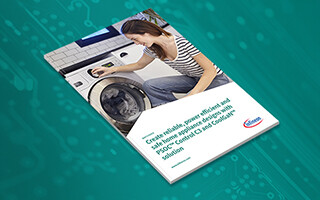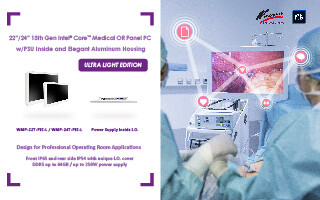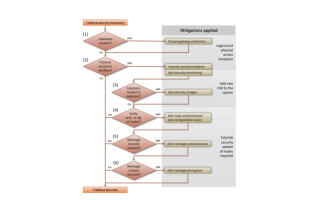How Cloud Drives Digital Transformation Across the Automotive Industry
December 01, 2020
Blog
Cloud technology has improved many aspects of modern life. Cloud computing has transformed the functioning of multiple industries driving innovation and growing the pace of business continuity.
Cloud technology has improved many aspects of modern life. Cloud computing has transformed the functioning of multiple industries driving innovation and growing the pace of business continuity. The automotive cloud-based solutions market is estimated to touch USD 66.95 billion revenue, at a CAGR of 19.88% by 2022. Industry backboned by the cloud has its own virtue. Cloud plays a major role in connected cars, autonomous driving, shared mobility, deeper customer insights, and digital manufacturing.
Let us see how cloud based automotive solutions revolutionizes the industry.
Connected Vehicles
Vehicles manufactured nowadays are not less than a supercomputer – generating a whole lot of data coming from the plenty of sensors installed on the vehicle to receive real time alerts/information about the tire pressure, GPS, temperature, and many more. This data can be run-time stored in the cloud and later can be used in the purpose of Telematics, Infotainment System or Vehicle Health Display, Advanced Driver Assistance System (ADAS), and Mobility Services.
Autonomous driving
Autonomous driving or self-driving vehicles can be simply considered as a robot-vehicle which is capable of driving the vehicle on its own without or least human intervention. Sensing out the live running environment – making use of the super artificial intelligence algorithms, Advanced Driver Assistance System yielding combined sensors data and real time HD maps can make a safer and pleasant experience for both the driver and the passengers traveling in the vehicle.
However, this complex system needs to be validated and tested rigorously, both on the roads and on complex simulation environments, or the OEM lines. The simulators being used here are cloud based as huge computational capabilities are required for the huge volumes of data to be transferred.
Shared mobility
Shared mobility usually refers to a ride sharing solution wherein a transportation mode like car or bike is being shared among the users on need basis, thus helping reduce the carbon emission and ease of clogging on the roads. Cloud based applications based on shared mobility solutions can embed a map (Google Map or leaflet) that can provide live a navigation experience with live traffic updates or alternate routes, displaying routes with the least amount of traffic along with the estimated time to reach the destination. Also, algorithms can be written to send out the alerts to the drivers nearest to the customer, thus resulting in the reduction of the driver’s idle time and the customer’s wait time.
Deeper customer insights
For automotive specific solutions, with a broad set of services – cloud technology provides any automotive company the power packed tools and services specialized in big data and analytics that are required to gather the best customer insights. With the help of the Query Engine as provided by the cloud, data can be ingested, stored, analyzed, and can be represented in the form of interactive dashboards, charts, and graphs that can help in understanding the analytical trends for manufacturing, supply chain, marketing, predictive QA, and customer behavior.
Digital manufacturing
Automotive manufacturing with the mindset of digitization has started helping companies establish themselves as a top competitor in the market in terms of quality. Making use of Robotics, AI, and other digital technologies in the manufacturing phase can really improve the production rate and quality with comparatively less chances of the defects.
Developing intelligent algorithms based on cloud data of the machineries can help manufacturers with predictive maintenance, data analytics with reporting, safety, and real time data monitoring of the products. This will in turn reduce the errors in the production environment and make the execution smooth.
Organizations under automotive industry also benefit in the areas of operations, finances, and security on successful implementation of cloud
Reduced cost
To fulfill the various production milestones, it is quite obvious that an automotive manufacturing facility will require huge infrastructure with on premise IT hardware equipment that can cost more in terms of setup, monitor, maintenance, and labor cost.
Thus, including the cloud in the infrastructure will lower down the burden as cloud providers like Azure, AWS, GCP, and more will care about all these parameters. Every cloud provider does have a big team of expert engineers to take care of setup and maintenance of your IT infrastructure on cloud at comparatively low prices as compared to in house setup. Also, one can define the requirements clearly at the time of selecting the cloud services, hence ensuring to pay for only what is really needed. The Cloud Service Provider will do regular monitoring to make sure that the system is up and running.
Reduced complexity
The automotive industry has always demanded powerful infrastructures, having servers with high compute capabilities to perform high level engineering tasks, large engineering simulations, and data analytics. Hence the maintenance of such powerful infrastructure is of utmost importance. With the provision of auto scalability for the servers being used in such infrastructure and the on demand storage for the data and compute capabilities to set up and running within the least possible timespan, cloud is super equipped with aforesaid capabilities and knows to do this in an efficient manner, reducing the complexity at user’s end.
Security and data backups
High availability and continuous monitoring to the storage and compute entities of any automotive facility can be done on the Cloud – which is fully managed by the Cloud Service Providers with added security (data encryption) and less risks of failures and breakdowns in the system.
Whether it is the data coming from the smart vehicles on the road or manufacturing, customer sales and services, marketing or the supply chain – continuously backing up important information over regular intervals makes sure that critical information that belongs to the automotive entities doesn’t get lost in case of sudden failures or accidental wipeouts.
Cloud computing makes the automotive sector and its data processing and storage faster, safer, and better. It also helps improve commuter experience and in-vehicle entertainment. It reduces the risks associated with data loss for car companies while giving a cost economy at the same time. Cloud analytics, image processing, and wireless connectivity enables full-proof and secure automotive solutions for connected cars, autonomous vehicles, and advanced fleet management systems for enterprises.
About the Author:
Jaikishan has been working with VOLANSYS past 3 years as Sr. Engineer in the Cloud domain. He has experience in designing and developing cloud-based UI using various technologies and tools. He is a tech enthusiast and can be seen looking into the tech updates/newsrooms in the free time.




